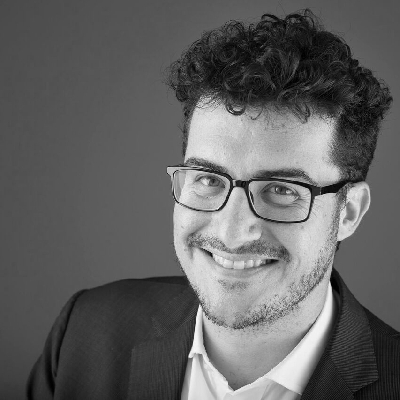Leaving oil in the ground by popular demand. This is what Ecuadorians approved yesterday in a historic referendum to stop the development of all new oil wells in Yasuní National Park in the Amazon, one of the regions with the greatest biodiversity on the planet. A decision that saw over 58 percent of Ecuador's citizens in favor of the initiative. A vote held during a very tense first round of presidential elections, but one that immediately overshadowed in its significance the political tensions that remain in a country that remains politically unstable.
Yasuni is one of the areas of greatest biodiversity in the world, with more plant and insect species (over one hundred thousand!) than the entire North America. Not only that, the area is home to two indigenous groups in voluntary isolation: the Tagaeri and the Taromenane, of Waorani culture, minorities whose survival is threatened by extractivism in the country.
I first wrote about the project to protect the Yasuní National Park, also known as Block 43 or Itt (Ishpingo-Tiputini-Tambo-cocha, the area of the reservoir) in 2010. To protect the area, the president at the time, Rafael Correa, wanted to try to create a unique UN-managed special fund to leave the oil in the ground in exchange for economic compensation related to the earnings the oil reserve could generate.
We are talking about 726 million barrels of oil, with a market value (at the time) of 7 billion euros, to be paid for by a half-value fund financed by industrialized countries to protect a natural paradise, home to more than 665 species of trees. The proposal had been made in 2007, when the REDD+ mechanism, promoted by the U.N. climate negotiations, to stop deforestation of large primary forests was taking hold.
Behind the proposal was the great Ecuadorian socialist intellectual Alberto Acosta, Correa's top leftist economist strongman, the gray eminence behind Ecuadorean constitutional reform, and then minister of energy in a country that bases its energy subsistence on oil. In his book La Maldición de la Abundancia (2009) Acosta makes clear how “oil could generate billions of dollars of damage to the environment. [...] We must therefore become a less extractive-based economy.”
But the fund, which was supposed to reach a quota of 3.5 billion euros by 2020, thus cutting emissions by 407 million tons of CO2 (equal to France's one-year emissions), has failed in its mission. Nothing was accomplished. Even the attempt to prop up the fund through the elimination of contracted debt (Italy announced a 35 million euro cut) through the debt-swap mechanism did not work, putting a tombstone on the proposal and paving the way for the bulldozers.
But the undergrowth of ecologists and indigenous communities did not stop, and for years they collected signatures for the referendum on Yasunì, leading to yesterday's victory. A sign that honest and pervasive political work can have impressive cultural impacts.
This time, by taking the popular referendum route, Ecuadorians are giving a clear mandate to the next head of state who will take office in Quito on October 15, after the runoff between Correista Luisa González, a leftist candidate of the Movimiento revolución ciudadana party, and banana-growing tycoon Daniel Noboa Azin. A clear-cut stop to extractivism was also reaffirmed by the local referendum in Quito, where a vote was taken to block a maxi gold mine in the Chocó Andino, an area of high biodiversity in the highlands near the capital (68 percent of the citizenry said they were in favor).
Should conservative, pro-development Noboa win, will the clear popular will to favor natural versus fossil capital be guaranteed? This is the question that many are asking and on which the international community will also have to direct maximum interest, keeping the spotlight on the Amazon region. Implementing the will of the people will not be easy, and Big Oil is watching this vote with concern.
From the referendum in Ecuador to the COP30 in Brazil all focused on the Amazon issue, a two-year period of great work, experimentation and struggle lies ahead in the Latin American world. It will be crucial to ground innovative economic development policies that go beyond pure extractivism yet know how to draw value and prosperity from their natural resources, made up of plants, natural services, and biodiversity. All of this will prove to be a source of new medical discoveries, protection of traditional knowledge, new forms of integrated forestry agriculture, and ecotourism.
A major contribution will also have to come from the more industrialized nations. Global common goods, such as the Amazon rainforest, must become a new class of economic assets to whose protection and preservation everyone contributes. Acosta's old project is still extremely valid and revolutionary today: resources to preserve natural capital and limit fossil extractivism. Less industrialized countries cannot be asked to stop the exploitation of the most valuable biomes at their own expense, especially to stop the use of oil and gas, because of the common challenge of climate and the biodiversity crisis. Everyone must contribute to the effort.
Support for these preservation initiatives passes through new mechanisms for moving economic resources, ranging from debt-swaps for less wealthy countries to new taxes on the intensity of materials in products (also seeking to de-tax labor costs).
In the Latin American world, the debate is heated, after Lula's proposal for a new Amazon agreement (disappointing), after the referendum result in Ecuador, after socialist Gustavo Petro's anti-deforestation reforms (with a 29.1 percent reduction in deforestation). This is a debate that Europe must follow closely and, given common intentions and opportunities, work on through its climate diplomacy.
The issue of green finance and the role of legislative initiative (from this referendum to the Montana Youth Legal Initiative) are the two key macro-themes for reversing the environmental crisis in this decade. The vote in Ecuador showed us a path of hope. Working to preserve it and make it concrete must be the goal of our civil societies and ruling class.
Image: Pexels



